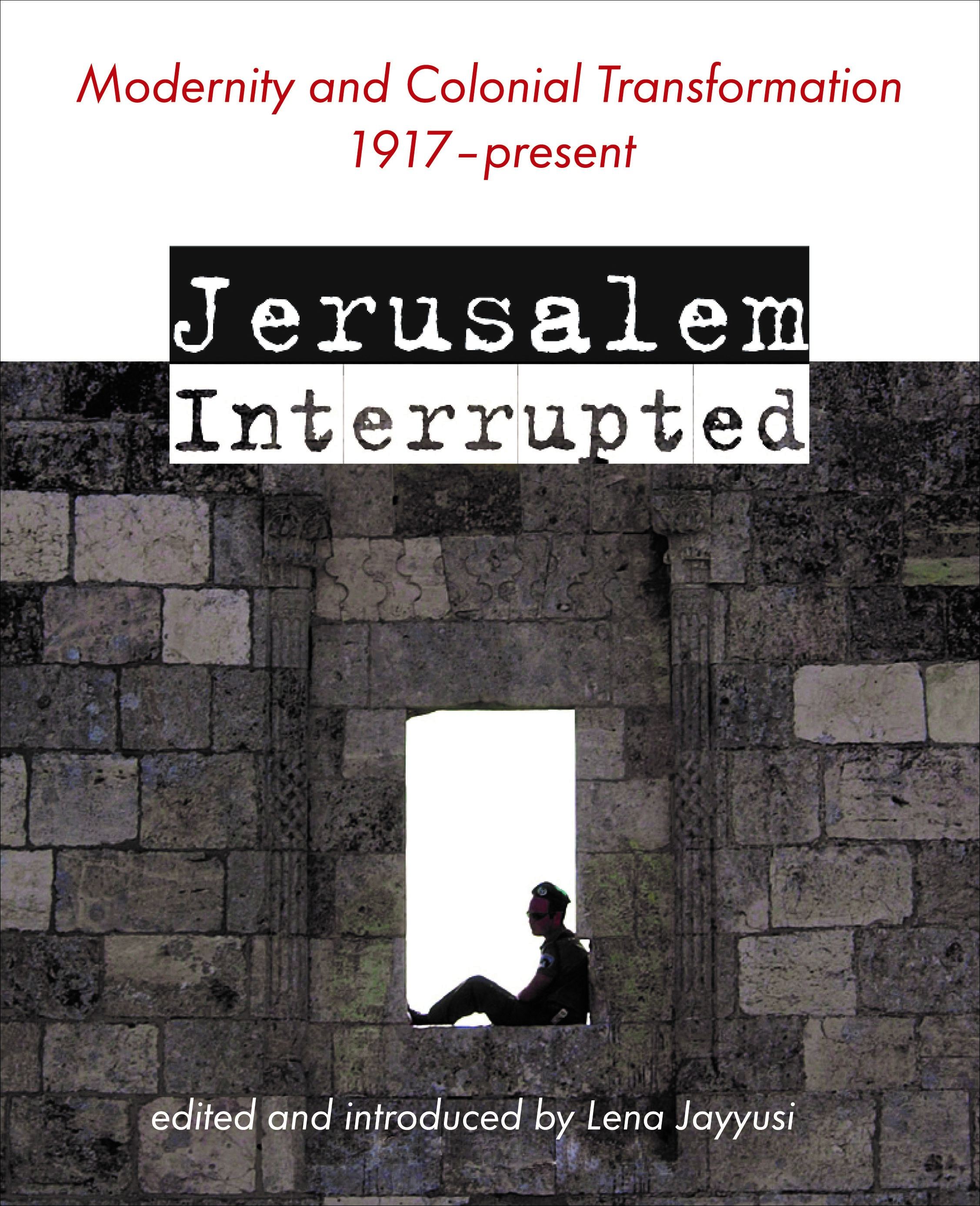Edited and introduced by Lena Jayyusi
Olive Branch Press, 2015, 499 pages, $60
Reviewed by Nora El Zokm, The American Colony Bookshop, Jerusalem
Jerusalem at the commencement of the British Mandate and progressed throughout the years of British control. The book highlights the many local advances that started during the first half of the twentieth century and continued until their disruption in 1948.
The first section’s twelve essays remind the reader of the culturally, politically, and socially thriving pre-1948 Jerusalem. Progress took root throughout the Palestinian landscape and centered on Jerusalem. Developments flourished in the arts, in media, in healthcare, and in the political sphere.
Ellen Fleischman’s essay explores the participation of Arab women in Jerusalem’s political life. Women from the upper and middle classes were active members of civic and charitable endeavours. And because charitable work was often interlinked with national work, their role in political life was quite impactful. Simultaneously, women of means were proudly accumulating educational accomplishments and using the educational space as a forum to recruit one another, to organize strikes and boycotts, and to collect donations for political causes. Finally, women from notable families actively created women’s associations based on joint political persuasions. These organizations, which crossed religious boundaries, resulted in a re-creation of social life based on political affiliation. Jerusalem’s uniqueness and centrality allowed for women’s greater participation in political life, and in return, the city’s political nature was deeply affected by the participation of women.
The second section of the book focuses on the end of the British Mandate. Six essays narrate the Israeli contribution to Jerusalem’s transformation into a Jewish city. The essays trace the increasingly rigid political stances towards the city and the subsequent impact on progress and everyday life.
Nahed Awwad’s essay on the Jerusalem Airport reminds us that in 1920 an international airport existed just five minutes away from Ramallah. The airport, now relegated to old photographs and recollections, represented a gateway between Palestine and the rest of the world. Its presence was an opportunity for young people to access international education, for celebrities to visit Palestine, and for employment across borders. In 2001, the airport fell under Israeli control, and with it all its benefits. Ironically, though the airport remains officially registered, its memory has all but died and its absence accepted as a natural state of affairs.
Jerusalem Interrupted is an attempt to add sound to the absence so customary in our knowledge of pre-1948 Arab Jerusalem. It is a memorial to the “silenced past” juxtaposed with the noisy present; a reminder of the Jerusalem that was and a reassessment of the Jerusalem that is. Most importantly, the book challenges the reader to pay attention to the future of Jerusalem. As Jayyusi notes, Jerusalem is being propelled into an era of technological and architectural modernity while also being pushed back into pre-medieval ethno-religious stratification. Jayyusi urges us to explore alternatives for the Jerusalem that could be.


